Showing 10 results for:
agriculture-department
Popular topics
All results

It pays not to be racist. Bloomberg reports that Tesla Inc. has just awarded a former Black employee over $1 million after they failed to stop his supervisors from calling him the N-word. Melvin Berry received a very rare discrimination award by an arbitrator followed by a closed-door proceeding. In the past, Tesla has been known to ignore the commonplace use of racial slurs that have been used at the electric-car maker’s northern California plant. For years the company not only refused to only address the racial slurs but was also slow to clean up graffiti of swastikas and hate symbols that were scrawled in workplace common areas. Berry fought with the company for years after he was met with discriminatory and racially charged actions from both co-workers and his acting supervisor during his tenure with the company. He was hired as a materials handler for Tesla in 2015 before quitting less than 18 months later. “I hope the world knows that an arbitrator found Tesla treats its...
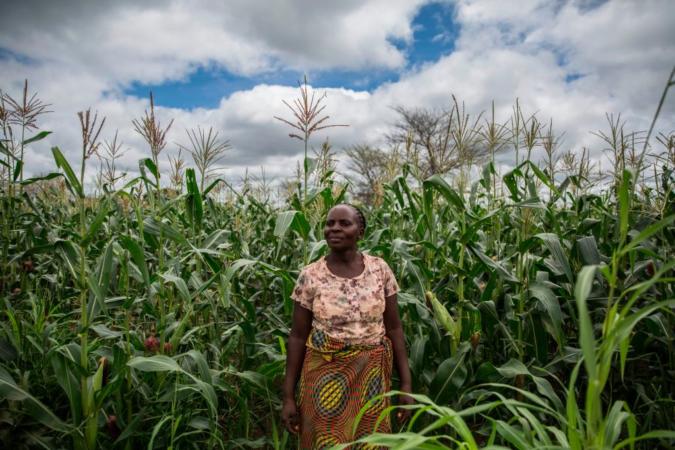
Small African farmers are facing a multitude of problems that affect the progress of agricultural production on the continent. But software-for-agriculture startup Khula has an innovative solution that’s helping this niche industry thrive again. TechCrunch reports that the South African-based company just announced the raise of a $1.3 million seed round to help further scale its farming software and expand nationwide. The round, which closed last year, was led by AECI — one of Africa’s biggest agrochemical companies — and included participation from South African impact investor E Squared Investments. With financial-backing from its lead investor, Khula now has access to AECI’s wide distribution network which is poised to help the platform scale its inputs app. AECI’s support will go a long way as a long-term partner that’s genuinely interested in the execution of the platform’s services. “Khula has very attractive fundamentals, a sizable addressable market, app development...
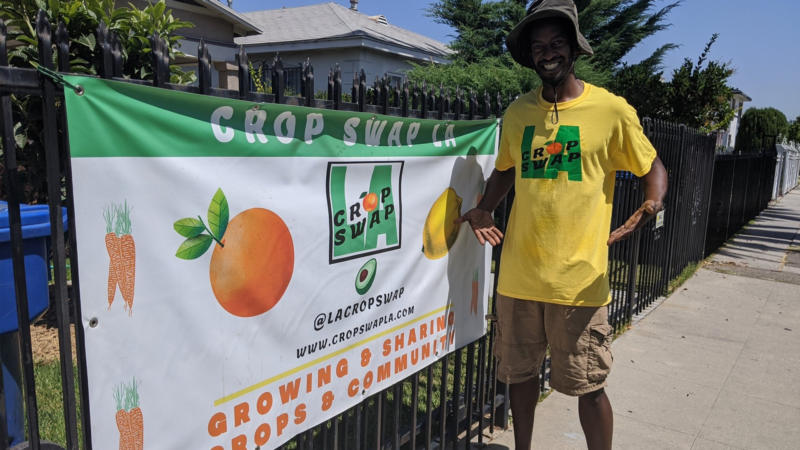
Crop Swap LA™ hasn’t stopped yet when it comes to its mission of ending food insecurity. The company has announced that it will receive $4 million from The California Budget Act of 2021. The selection is a major move for Crop Swap LA™ as it continues to work to eradicate food insecurity and create hyper-local access to organically grown food through the use of sustainable agriculture practices. “Our team and supporters are thrilled to see this commitment of confidence, funds, and opportunity to the urgent need to grow nutrient-rich food directly within our communities,” continued Crop Swap LA Founder, Jamiah E. Hargins in the statement. “The funds will enable Crop Swap LA to continue its mission, widen its impact, and deepen its resolve. The people of California who contributed through these funds can feel satisfied knowing that our team is committed to redefining the spirit and intention of community-sourced food production. Senator Kamlager has made a direct investment in the...
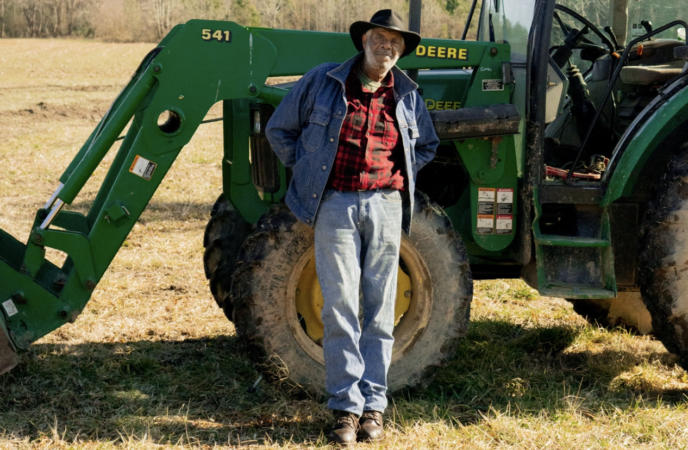
Here we go again. A Wisconsin federal judge has ordered a temporary stop to the $4 billion federal loan relief program created to address decades of injustice faced by Black farmers. The decision to halt the program is the response to white tears after a group of white farmers filed a legal challenge in which they claim to have been discriminated upon (the nerve, right?). Last Thursday Judge William Griesbach issued a temporary restraining order that in turn blocked the U.S. Department of Agriculture from moving forward with the relief payments. According to NBC News , Griesbach said that the white farmers are “likely to succeed on the merits of their claim,” that the USDA’s “use of race-based criteria in the administration of the program violates their right to equal protection under the law.” Black farmers like John W. Boyd say that years of work have been put into the bill just for white counterparts to try and shut it down…again. “I’ve been trying for decades to get this passed...

Greg Francis is an attorney who landed a $1.25 billion settlement for Black farmers, the largest settlement of its kind in American history. In his new book, “ Just Harvest: The Story of How Black Farmers Won the Largest Civil Rights Case against the U.S. Government, ” he details just how he managed to do that. “The one thing I learned from that case is that all those farmers wanted was a chance,” Greg Francis said to Black News. “They didn’t ask for anything extra. They just wanted to be treated, and to be given the same opportunities, as everyone else. That’s all any of us want.” The “Black Farmers Case,” as it’s known in legal circles, was a class-action civil rights case filed by more than 20,000 Black farmers, and their descendants. Their claim was based on the ongoing disparate treatment of Black Farmers across the United States — a disparity which the Biden administration is currently trying to take steps to ameliorate. Back in March 2021, the Biden administration announced...

John Deere is doubling down on its commitment to uplifting Black farmers. In the midst of the Black Lives Matter protests that followed the murder of George Floyd last summer, the leading tractor equipment company created a coalition on a mission to improve the livelihood of Black farmers. Legislations, Education, Advocacy, and Production (LEAP) was created to put action behind the company’s commitment to supporting Black farmers and now it’s advancing its mission in a partnership with the National Growers Council and the Thurgood Marshall College Fund (TMCF). Together, they will partner with the Federation of Southern Cooperatives/Land Assistance Fund to help eliminated barriers created by Heirs Property. “I am extremely excited about John Deere’s history and ongoing support of the Federation’s work in this regard,” shared Dania Davy, Director of Land Retention and Advocacy at the Federation in an exclusive interview with AfroTech. “For over 50 years, the Federation has worked to...
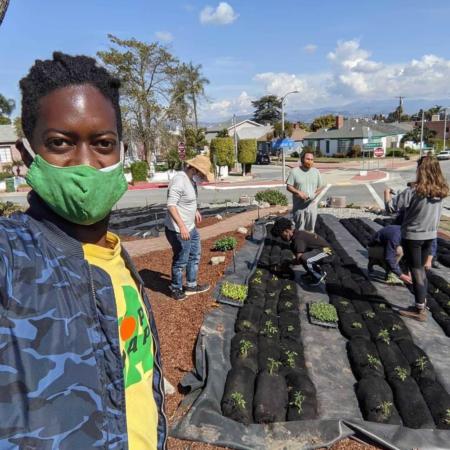
This man is transforming front lawns into sustainable farms for families. Jamiah Hargins is using his expertise to turn South Los Angeles lawns into planted kale, rainbow chard, tomatoes, and enough produce to feed 50 families within the neighborhood each week, Fast Company reports. “My company partners with homeowners who have a front yard and want to do something positive,” said Hargins, founder of Crop Swap LA. Crop Swap LA is the startup that installs and manages micro-farms or community gardens. All neighbors have to do is pay a monthly subscription fee to receive the local goods and they’ll receive both a share of the produce and a cut of the proceeds. “We maintain it, but they get part of the income every month,” Hargins told Fast Company. After starting a vegetable garden of his own at home a few years ago and realizing that he’d grown more than his wife could eat, Hargins leaned on Nextdoor to set up produce swaps with neighbors. He then began to think about how to create...
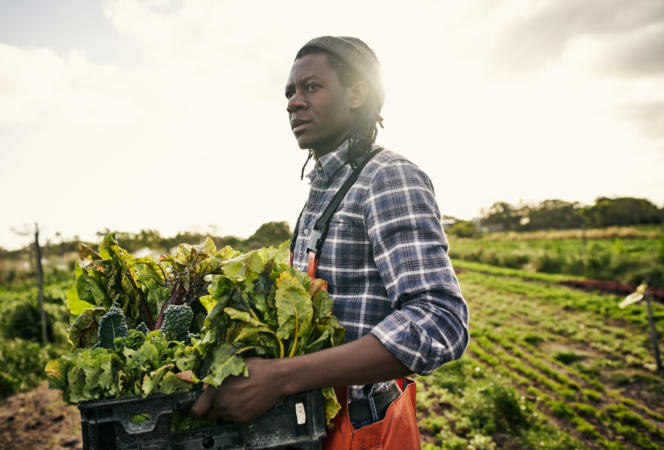
Justice for Black farmers! Following the $4 billion debt relief for Black farmers, The New York Times reports that banks are fighting back noting that quick repayments will cut into profits. The institutions are complaining that the government’s initiative to pay off the loans of those Black farmers who have faced decades of financial discrimination will not only hurt investors but cut into the bank’s profits. In March, Congress passed a $1.9 trillion stimulus package which includes the debt relief for the Black farmers and is intended to make things right for years of discrimination faced by all nonwhite farmers. Today, no money still has been received by those farmers. Aside from the drama with the banks, white farmers sued the U.S.D.A over the initiative claiming that they are victims of reverse discrimination. Now, three of the largest banking groups involved in the settlement have formed their own fight against the money that is rightfully owed to Black farmers. The American...
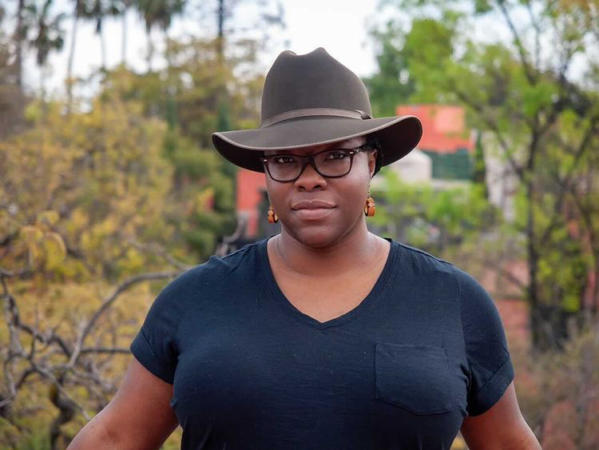
When Shellie-Ann Kerns left her home in Jamaica to join her husband in Washington State, she wasn’t sure what to expect. They moved to his family farm in Gray’s Harbor and she immediately began imagining ways to make the land productive. Family Roots “Farming for me, it’s in my blood on my mother’s side, and from her great grandmother, all the way down. My father’s family is also agricultural,” she said. “It’s something that I understand how it works. Something that I’ve just always been passionate about. When I came here, it was winter. And I needed to plant something. I did some research and I saw that, ‘hey, you can plant garlic in the middle of winter.’” Her first batch of garlic did so well that Kerns continued to plant garlic every winter. Now she’s taking her farming up a notch and making it a community affair. For her, farming is about supporting her community on a basic level. Decolonizing The Food System “What’s really driving me is the ability to feed the community,”...

When one typically thinks of farmers, images of white people in Middle America almost immediately come to mind. There’s a variety of reasons why the United States wanted to push the quasi-stereotypical “Dust Bowl” image of the “All American” farmer, but those reasons are all, at their core, rooted in white supremacy and racism. For Angela Dawson, a fourth-generation farmer based in Minnesota and the founder of the 40 Acres cooperative, reclaiming the farming narrative for Black farmers also involves reclaiming the farms that were stripped away from them. “There is so much financial trauma embedded in the Black farming narrative,” she told AfroTech. “Foreclosure, racism, slavery, marginalization — and, of course, the lack of representation. What farmers look like us in the popular narrative? That’s why, whenever Congress passed a farming bill, it never included Black farmers. But that’s what we’re looking to change.” Dawson left her thriving career as a food writer and marketer to...